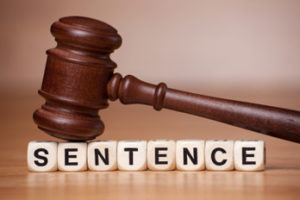
Would You Rather Have Skill or Talent as a Writer?
Is effective writing borne of skill or talent? There has always been a debate about whether artistic trades are a matter of learned skill or inherent talent. On the one hand, there is the belief that some are born with active and imaginative right brains and are therefore better able to manifest creativity. On the…Read More

How to Become a Better Writer
There’s more to writing than pushing a pen across a piece of paper, and there’s more to being a writer than having written. These days, everyone’s a writer. We write emails, text messages, and lists. A free blog is just a few clicks away. Self-publishing has drawn tens of thousands of dreamers who have scrawled…Read More

Philosophical Journal Prompts
What is philosophy? Let’s turn to Wikipedia for a simple, straightforward definition: “Philosophy is the study of general and fundamental problems, such as those connected with existence, knowledge, values, reason, mind, and language…It is distinguished from other ways of addressing such problems by its critical, generally systematic approach and its reliance on rational argument.” Today’s journal…Read More

Storytelling Exercise: Plot Analysis
Today’s storytelling exercise is an excerpt from my book, Story Drills: Fiction Writing Exercises, which helps beginning to intermediate storytellers develop skills in the craft of fiction writing. This exercise explores one of the most important elements of any story: plot. It’s called “Plot Analysis.” Enjoy! Plot Analysis Some readers think analyzing a plot takes…Read More

Grammar Rules: Ending a Sentence with a Preposition
A longstanding grammar myth says we’re not supposed to end a sentence with a preposition. For years, this myth has persisted, tying writers up in knots and making their heads spin around sentences that simply must end with a preposition. For example: Which store are you going to? Folks who were taught (and are now…Read More

12 Places to Find Awesome Writing Ideas
Some writers are overwhelmed with inspiration and can’t find enough time to bring every brilliant idea to fruition. The rest of us are always on the lookout for compelling writing ideas to add to our inspiration archives. But writing ideas are not always easy to come by. So we constantly search for inspiration that will keep us happily…Read More

Tips for Better Writing
By now, you’ve probably heard that it takes 10,000 hours of practice to become an expert at anything. There’s some debate as to the truth of the 10,000-hour rule, but there is definitely truth to the notion that nobody’s born a master at the craft of writing. It takes time, energy, and practice to become…Read More

Storytelling Exercise: Managing Our Ideas
Today’s storytelling exercise is an excerpt from my book, Story Drills: Fiction Writing Exercises, which helps beginning to intermediate storytellers develop skills in the craft of fiction writing. This exercise is designed to help you manage your writing ideas (or lack thereof). It’s called “Managing Our Ideas.” Enjoy! All the storytelling skills in the world…Read More

Punctuation Marks: Ellipsis
You see it everywhere, but most people don’t know what it’s called or how to use it properly. In fact, it’s often referred to as “dot, dot, dot” even though it does have a name. This punctuation mark is the ellipsis. It is a series or row of three periods, which is usually used to indicate…Read More

How to Engage Readers with Emotional Writing
One of the greatest skills that a writer can possess is the ability to make readers feel something. If you can engage readers on an emotional level, you’ll have them hooked. This effect is called emotional resonance. Think about it: Most of the books, poems, movies, and TV shows that you love best are the…Read More



